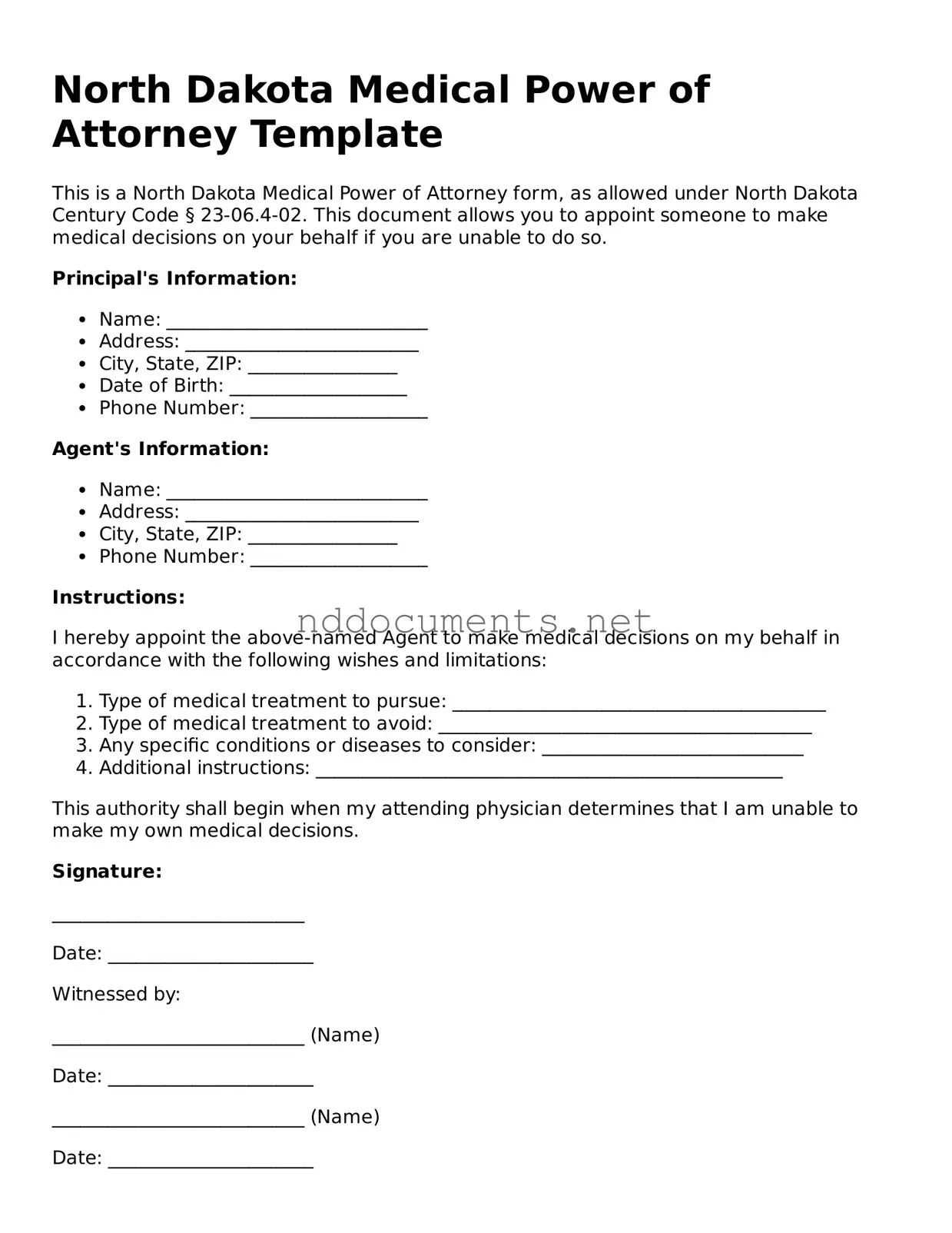Fillable Medical Power of Attorney Document for North Dakota
A North Dakota Medical Power of Attorney form is a legal document that allows an individual to designate another person to make healthcare decisions on their behalf in the event they become unable to do so. This form is essential for ensuring that medical preferences are respected and that a trusted person is empowered to act in critical situations. Understanding the requirements and implications of this form is crucial for effective healthcare planning.
Make Your Document Online

Fillable Medical Power of Attorney Document for North Dakota
Make Your Document Online

Make Your Document Online
or
➤ Medical Power of Attorney
Don’t walk away from an unfinished form
Finish Medical Power of Attorney online quickly from start to download.